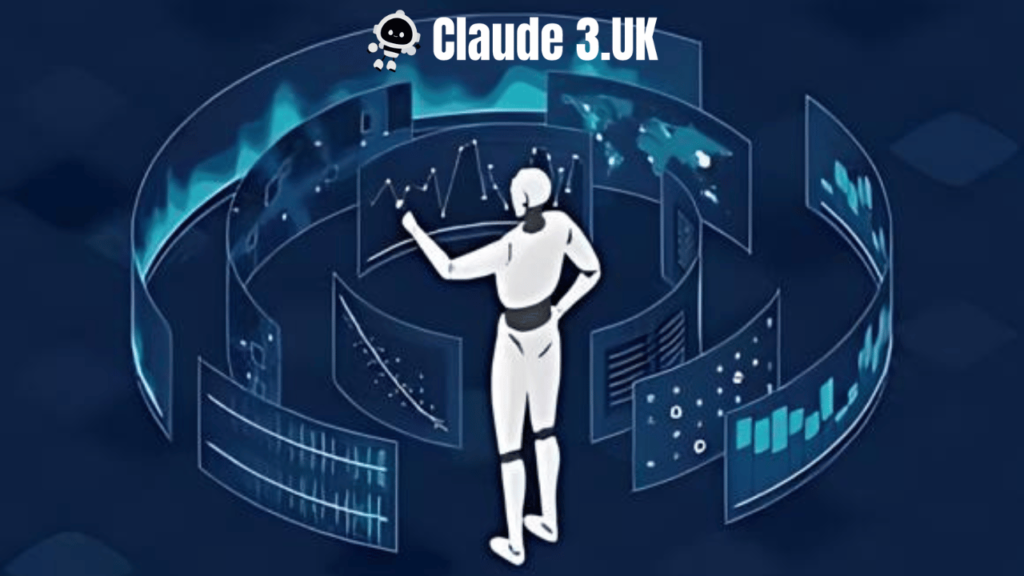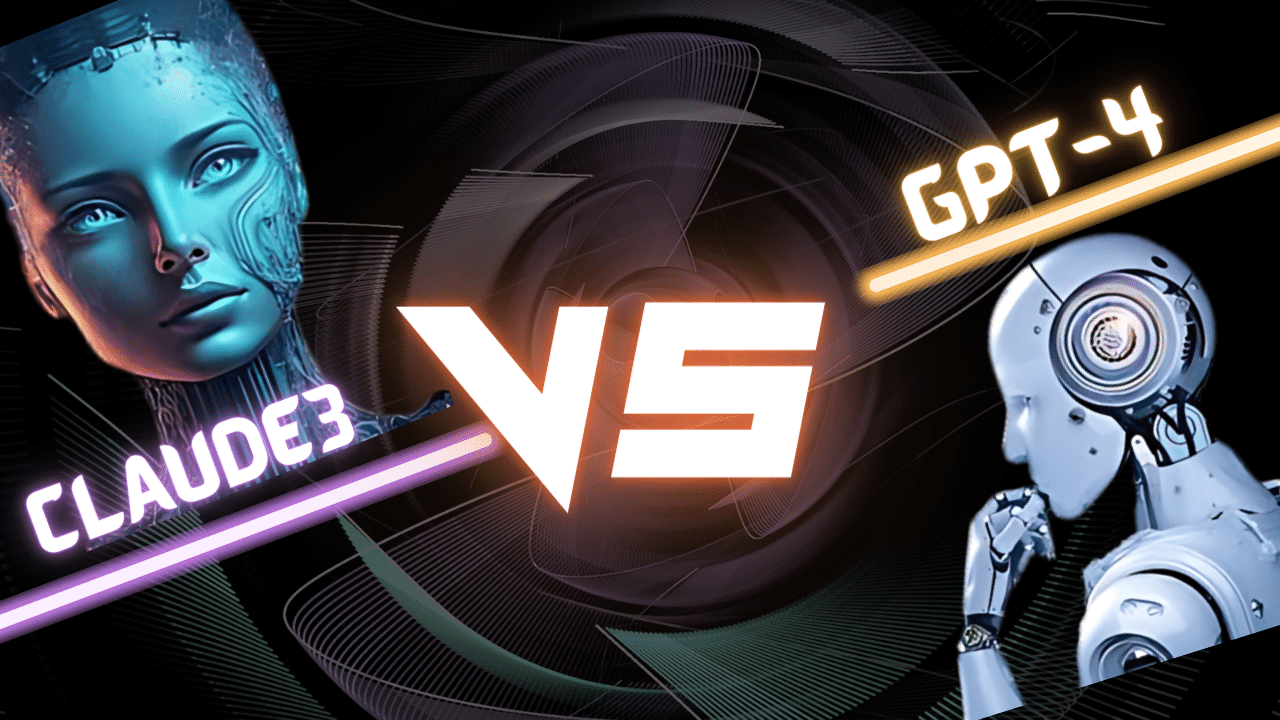Introduction
Artificial Intelligence (AI) continues to advance rapidly, offering powerful tools for a wide range of applications. Among the leading AI models are Claude 3 and GPT-4, each with its unique strengths and capabilities. Understanding the differences between these models is crucial for making an informed decision about which one best suits your needs. This article provides a detailed comparison of Claude 3 and GPT-4, examining their performance in various areas such as multilingual math, coding, reasoning over text, and mixed evaluations.
Overview of Claude 3 and GPT-4
What is Claude 3?
Claude 3 is an advanced AI model designed by Anthropic. It is tailored for tasks requiring high levels of accuracy, efficiency, and understanding. Claude 3 excels in multilingual applications, complex problem-solving, and specific domains like coding and reasoning.
What is GPT-4?
GPT-4, developed by OpenAI, is a highly versatile AI model known for its broad applicability and strong natural language processing (NLP) capabilities. It builds on the strengths of its predecessors, offering enhanced performance in text generation, comprehension, and various other tasks.
Performance Comparison
Multilingual Math
Multilingual capabilities are essential for AI models used in global applications. Claude 3 and GPT-4 both support multiple languages, but their performance in multilingual math tasks shows a notable difference.
Claude 3’s Strengths
Claude 3 leads in multilingual math with a performance score of 90.7%. This high score reflects its ability to handle mathematical problems accurately across different languages, making it a valuable tool for educational and technical applications worldwide.
GPT-4’s Performance
GPT-4 scores 74.5% in multilingual math. While this is a respectable performance, it is significantly lower than that of Claude 3. GPT-4’s multilingual math capabilities are sufficient for many applications, but may not match the precision required for highly technical or educational purposes.
Coding (HumanEval)
Coding capabilities are crucial for AI models used in software development and programming education. The HumanEval benchmark measures an AI model’s ability to generate correct code for given tasks.
Claude 3’s Coding Prowess
Claude 3 excels in coding tasks, scoring 84.9% on the HumanEval benchmark. This high score indicates that Claude 3 can generate accurate and efficient code, making it an excellent choice for developers and educators seeking AI assistance in coding.
GPT-4’s Coding Capabilities
GPT-4 achieves a score of 67.0% on the HumanEval benchmark. While it is capable of generating functional code, it may not match the precision and reliability of Claude 3. GPT-4 is still a useful tool for coding tasks, but users requiring high accuracy might prefer Claude 3.
Reasoning Over Text
Reasoning over text involves understanding and drawing logical conclusions from written information. This capability is vital for applications in education, customer service, and content generation.
Claude 3’s Text Reasoning
Claude 3 performs strongly in reasoning over text, with a score of 83.1%. Its ability to understand and interpret text accurately makes it suitable for applications that require critical thinking and detailed comprehension.
GPT-4’s Text Reasoning
GPT-4 scores 80.9% in reasoning over text, slightly lower than Claude 3. While it still offers excellent text reasoning capabilities, it may not be as precise as Claude 3 in certain complex reasoning tasks. However, its versatility across various text-based applications remains a significant advantage.
Mixed Evaluations
Mixed evaluations involve a combination of different tasks to assess the overall performance and adaptability of AI models.
Claude 3’s Mixed Evaluations
Claude 3 outperforms in mixed evaluations with a score of 86.8%. This high score demonstrates its adaptability and robustness across a wide range of tasks, making it a versatile choice for users with diverse needs.
GPT-4’s Mixed Evaluations
GPT-4 scores 83.1% in mixed evaluations. Although slightly lower than Claude 3, this score still reflects GPT-4’s strong overall performance and its ability to handle a variety of tasks effectively.
Use Cases and Applications
Education
Claude 3 in Education
Claude 3’s superior performance in multilingual math and coding makes it an ideal tool for educational purposes. It can assist students and teachers in solving complex mathematical problems, learning programming languages, and understanding various subjects through accurate reasoning and interpretation of texts.
GPT-4 in Education
GPT-4’s versatility and strong NLP capabilities make it valuable in education for generating educational content, providing language learning support, and enhancing interactive learning experiences. Its slightly lower performance in specialized tasks like multilingual math and coding is offset by its broad applicability in educational settings.
Software Development
Claude 3 in Software Development
Claude 3’s high score in coding tasks positions it as a powerful tool for software developers. It can generate accurate code snippets, assist in debugging, and provide solutions to complex programming challenges, enhancing productivity and efficiency.
GPT-4 in Software Development
GPT-4 can support software development by generating code, providing documentation, and assisting with code review. While its coding capabilities are slightly lower than Claude 3, its versatility makes it a valuable asset for developers needing assistance across various aspects of software creation.
Business and Customer Service
Claude 3 in Business
Claude 3’s strong performance in reasoning over text and mixed evaluations makes it suitable for business applications requiring detailed analysis and decision-making. It can assist in data interpretation, report generation, and customer inquiries.
GPT-4 in Business
GPT-4’s broad NLP capabilities and adaptability make it an excellent choice for customer service applications, generating business insights, and automating content creation. Its ability to handle diverse tasks efficiently can enhance business operations and customer engagement.
Strengths and Weaknesses
Claude 3
Strengths
- High Performance in Multilingual Math: Leads with a score of 90.7%, making it ideal for global educational and technical applications.
- Superior Coding Capabilities: Scores 84.9% on the HumanEval benchmark, providing accurate and efficient coding solutions.
- Strong Reasoning Over Text: Excels with an 83.1% score, suitable for complex reasoning tasks.
- Versatility in Mixed Evaluations: High score of 86.8%, demonstrating robustness across various tasks.
Weaknesses
- Specific Domain Focus: While excellent in specialized tasks, its performance in more generalized tasks might not match GPT-4’s versatility.
- Resource Intensive: Higher performance might come with greater computational requirements, potentially limiting accessibility for some users.
GPT-4
Strengths
- Versatility and Adaptability: Strong performance across a wide range of tasks, making it suitable for various applications.
- Broad NLP Capabilities: Excellent in natural language processing, suitable for generating content, language learning, and customer service.
- Overall Strong Performance: High scores in mixed evaluations (83.1%) and reasoning over text (80.9%), demonstrating reliable performance in diverse tasks.
Weaknesses
- Lower Specialized Task Performance: Slightly lower scores in multilingual math (74.5%) and coding (67.0%) compared to Claude 3.
- Generalist Approach: May not provide the high level of precision needed for highly specialized tasks as effectively as Claude 3.

Future Developments
Claude 3 Enhancements
Claude 3 is continuously evolving, with future developments likely to focus on further enhancing its performance in specialized tasks and expanding its applicability across more domains. Improvements in resource efficiency and accessibility are also expected.
GPT-4 Advancements
OpenAI is likely to continue refining GPT-4, enhancing its specialized capabilities while maintaining its broad versatility. Future updates may include improved performance in multilingual math and coding, as well as new features to further support diverse applications.
Conclusion
Choosing between Claude 3 and GPT-4 depends on your specific needs and priorities. Claude 3 excels in specialized tasks such as multilingual math, coding, and reasoning over text, making it a powerful tool for education, software development, and complex analytical tasks. GPT-4, with its broad versatility and strong NLP capabilities, is ideal for applications requiring adaptability, content generation, and customer service.
Both AI models offer significant advantages, and the right choice will depend on the particular requirements of your projects. By understanding the strengths and weaknesses of each model, you can make an informed decision that best suits your needs, ensuring optimal performance and efficiency in your AI-driven endeavors.
FAQs
Which AI model performs better in multilingual math?
Claude 3 leads in multilingual math with a performance score of 90.7%, compared to GPT-4’s 74.5%.
Which AI model is better for coding tasks?
Claude 3 excels in coding tasks with a score of 84.9% on the HumanEval benchmark, while GPT-4 scores 67.0%.
How do Claude 3 and GPT-4 compare in reasoning over text?
Claude 3 scores 83.1% in reasoning over text, slightly ahead of GPT-4, which scores 80.9%.
Which AI model is more versatile?
GPT-4 is more versatile, performing well across a wide range of tasks, making it suitable for diverse applications like content generation and customer service.
What are the mixed evaluation scores for Claude 3 and GPT-4?
Claude 3 outperforms with a score of 86.8% in mixed evaluations, while GPT-4 scores 83.1%.
Which AI model is recommended for software development?
Claude 3 is preferred for software development due to its high accuracy and efficiency in coding tasks.
What are the strengths of GPT-4?
GPT-4’s strengths lie in its versatility, strong natural language processing capabilities, and broad applicability in tasks like content creation and customer service.
Are there any weaknesses of Claude 3?
Claude 3, while excellent in specialized tasks, may be more resource-intensive and less versatile in general tasks compared to GPT-4.
Are there any weaknesses of GPT-4?
GPT-4’s specialized task performance in areas like multilingual math and coding is slightly lower compared to Claude 3.
What factors should I consider when choosing between Claude 3 and GPT-4?
Consider your specific needs: Claude 3 is better for specialized tasks like multilingual math and coding, while GPT-4 is more versatile and suitable for a broader range of applications.
